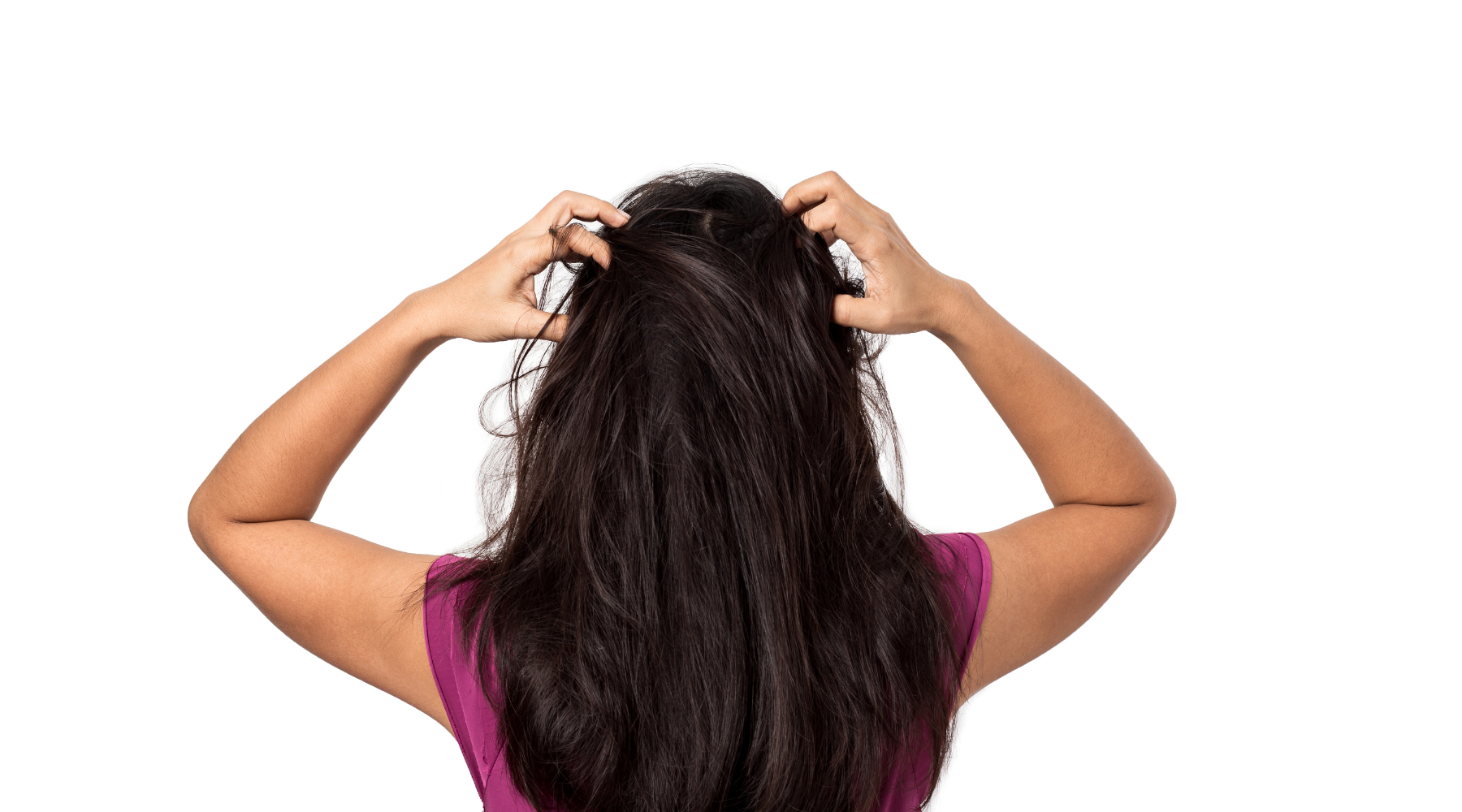
29 Aug How to get rid of an Itchy Scalp
An itchy scalp is at least annoying and at worst unsightly and incredibly irritating. No one wants to be walking around scratching their heads all the time!
The problem with any itch is, if you scratch it, it will itch more. You then get trapped in a cycle of itching and scratching and it just seems to get worse. This is the histamine in your body preparing to fight the intruder which is causing the itch.
Yes, it’s unsurprisingly known as the ‘itch-scratch cycle’.
So what’s the solution to all this itching?
It’s simple – if you don’t scratch it – it won’t itch. I know, easier said than done!
A good place to start is to rule out some of the causes of an itchy scalp. There are a myriad of reasons for an itchy scalp. Here are some of the most common and how to remedy them.
Head Lice
If you have children you will know the pain (or itch) of this all too well! There are loads of over the counter treatments, but if it’s a continual problem, I would also recommend combing through weekly with a fine comb to remove any new eggs.
Perfume in your hair products
Fragrances are common sensitizers and many people don’t realise that perfume is added to shampoo, conditioner, styling products and sprays. Maybe you have used the same brand for years and never had a problem. Then the manufacture changes the packaging along with the formula and you suddenly develop an itchy scalp seemingly out of nowhere.
The first place to look for the cause is the back of your product bottles – you could be allergic to a new ingredient.
Common allergens include: propylene glycol, vitamin E, parabens, benzophenones, iodopropynyl butylcarbamate, methyldibromo glutaronitrile/phenoxyethanol and glycerol thioglycolate.
First off, try another product and see if your scalp settles down. Choose a fragrance free product or one with natural ingredients.
Central heating
Do you notice your head feels itchier in the winter months? Central heating dries out the air in our homes and this can dehydrate our scalp.
Also, when we go outside, the moisture in the air is higher than in the home and this can also trigger an itchy scalp
Obviously you don’t want to be sat shivering, so my tip is to keep a bowel of water in each room to keep moisture levels normal.
Change your conditioner to a more moisturizing, nourishing one during the colder months or try a scalp serum once a month to rehydrate.
Seasonal itchy scalp
Pollen levels can affect your scalp as well as making you sneeze, your eyes water and itch.
Some people don’t get any of these symptoms but may suffer from ‘contact pollen reaction’. This is when, most commonly, the grass pollen touches your skin and scalp, causing it to become very itchy.
The solution? Don’t rub any creams or sprays onto your skin or scalp if this is your only symptom. Instead, run cold water over your skin where you have touched the pollen and the same with your scalp. Ensure it gets through to your scalp for a few minutes, then when hair is completely wet, wash the remaining pollen away.
Grass pollen works its way down the hair shaft so your scalp may not itch straight away, but you can see the pollen sat on your hair
Over washing your hair
A lot of dry skin conditions occur when the skin becomes dehydrated. You would recognise this straight away and would apply body lotion.
The scalp is the same, but we tend not add a lotion, or moisturiser.
If you wash daily or every other day you will dry out your scalp and could create an itchy scalp.
There are several manufacturers that are formulating scalp serums for dry scalps and I think they are worth trying if this is likely to be your problem.
Another tip to prevent an itchy scalp is to not over wash your hair. Ideally, hair should be washed twice a week or every three days maximum – if you can, go longer between washes.
The benefits of silk
You have probably seen plenty of adverts for silk pillowcases and head wraps. The natural proteins in silk can help soothe an itchy scalp. Hydrolysed silk is good for damaged hair and good for your skin. Silk also absorbs less moisture than other popular bedding materials like cotton. This allows the skin to retain more moisture, which in turn helps prevent dry or itchy skin and scalp. Silk is also less likely to absorb any lotions or serums you might use in your hair.
I am working with a lady who has created a brand called ‘This is Silk’, looking at the wonderful properties of silk on the skin and scalp. We are in the process of formulating a scalp lotion which will hydrate and re balance the scalp so an itchy scalp becomes a thing of the past!
Watch this space, I will let you know when there is one available.
There are of course many causes of an itchy scalp, including some medical conditions so if you try my recommendations and are still suffering, it might be a good idea to talk to your GP or see a trichologist such as myself.
I can identify the cause and offer the correct treatment for management and recovery of itchy scalps and other common hair and scalp problems.

No Comments